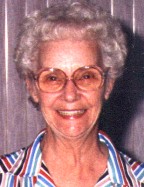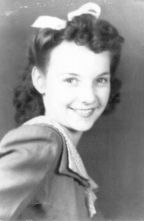COALS TO NEWCASTLE
By Marion Hess
In 1944 I was seventeen years
old. In February I married Fred who was also seventeen soon to be eighteen
in April. We knew that he would be called up for the draft soon after that birthday. He entered the Army in July. In the few months we had
together I learned that he loved canned pineapple tidbits which brings
me to the point of this story
that birthday. He entered the Army in July. In the few months we had
together I learned that he loved canned pineapple tidbits which brings
me to the point of this story
After he left to go to war,
I returned home to live with my parents in a row house on a narrow street
in Philadelphia, PA. Everyone lived with the wartime restrictions and
the precious ration books issued to all. There were coupons for everything,
gas, shoes, food etc. Our daily menus depended on how many coupons one
had in addition to the price of the food and hereby hangs this tale.
The neighborhood was close
knit. There were many servicemen flags hanging in the windows, a blue
star denoting someone serving or a gold star for someone killed in action.
We were all in the same boat , sharing experiences and news and helping
when needed. It was a tense but wonderful camaraderie. All of us "grass
widows" spent a lot of time writing to our men, some in Europe,
mine in the South Pacific and one in Burma. The highlight of the day
was the arrival of the mailman.
As mentioned above, I knew
my soldier loved pineapple and since canned fruit or anything with sugar
in it was high priced, not everyone used those coupons. So at the beginning
of each month when my allotment check arrived , I would canvas my friends
and collect their unused coupons and buy canned pineapple tidbits. I
sent Fred a box every month containing numerous items that I knew he
could use and the precious pineapple.
These care packages were a
labor of love. It made me happy that I could send him something I knew
he would enjoy and remind him of home and better times. The mail we
received from them were heavily censored and could contain no references
to where they were or what they were doing but as the war wound down
they were able to write more details . Then one day the anxiously awaited
mailman brought me a letter which informed me that they were camped
on the huge Del Monte pineapple plantation on Mindanao in the Philippine
Islands. So my crusade ended. No more canned pineapple got sent since
there is no comparison between canned fruit and that pulled ripe and
sweet from the warm earth. In the 45 years following those times, we
had many a good laugh at my sending my " Coals to Newcastle".

A Walk Up The
Avenue
by Marion E. Hess
I was nine days short of my fifteenth birthday on the day Japan attacked
Pearl Harbor. I lived in Wildwood, N.J. a seashore island which up to
that time had provided an idyllic childhood. In the summer when the
vacationers came, we spent our days at the beach enjoying the sand and
the ocean. In the winter when they had all gone home and we had our
island to ourselves again we were free to roam and ride our bikes .
All that changed in the months following Dec.7,1941.
|

Marion Hess at 14
|
Everyone during the war years
lived with shortages, ration coupons, civil defense, scrap drives
etc. Our island was transformed . We had blackouts because of the
German U-Boats patrolling up and down the east coast. The entire
east coast was under blackout orders but this was not totally successful.
While all the lights were painted black on the side facing the sea
and headlights on cars were partially painted, enough light was
visible that it silhouetted any ship in the shipping lanes off the
coast . It was particularly dangerous off the coast of the major
cities and the U-Boats had a field day.The island which during winter
months was pretty much deserted except for us "natives"
became popular with the sailors from the Naval Air Station in Cape
May, an island just south of us. I remember the day I saw an F4U
Corsair fly over and I thought it was so beautiful.
It looked |
like a seagull. I also remember riding my
bike one afternoon on the deserted boardwalk . Looking out to sea I saw
ships in every direction. They looked like warships to me. Perhaps it
was the formation of a convoy. It didn't take long for the beautiful white
sandy beach to become a tarry mess along the waters edge.
I was a sophomore in high
school and one afternoon , Mrs.Gulick, my biology teacher asked me to
go to her apartment a few blocks up the avenue and get something for
her. I can't remember what I retrieved for her but I'll never forget
what I saw while going there. Her house was located next door to Ingersolls,
the only funeral parlor in town and just as I got there two grey stake
trucks pulled into their parking area. In the back of the trucks were
bundles wrapped in a black material. I stood across the street and watched
the unloading of the vehicles and it dawned on me that these bundles
were the bodies of seamen which had washed up on the beach from a torpedoed
freighter . In that instant the war became a reality for me.
Prior to this event I had spent the best part of
my life on the beach and in the ocean. I was a good swimmer and loved
diving into the breakers and riding the waves. On that spring day in
1942 the ocean ceased to represent recreation and fun to me. In the
fifty five years that have transpired since then I could count the times
on one hand that I've been in the ocean. It came to represent death
to me and I was sure that I'd step on a hand or arm. If I close my eyes,
I can still see those grey Coast Guard trucks. I guess one could say
that my childhood was also a casualty of the U-Boat war . .

Send Corrections, additions, and input to:
WebMaster/Editor


|
 that birthday. He entered the Army in July. In the few months we had
together I learned that he loved canned pineapple tidbits which brings
me to the point of this story
that birthday. He entered the Army in July. In the few months we had
together I learned that he loved canned pineapple tidbits which brings
me to the point of this story